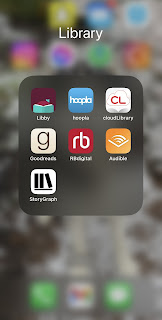This week's topic: How to Grow Your Newsletter (Subscriber Numbers)
Direct marketing to readers who are actively interested in your works is one of the top ways to sell books. Finding those readers, getting through email delivery systems' spam blockers, and encouraging readers to not only open your email but also click through from your email to purchase your book is...a challenge for many small and midlist authors.
Heck, it's a challenge across all industries. Take a look at your email inbox. Now, look at your trash box. How many messages are from a sheet company, shoe company, pet toy company, grocery store, big box store, etc? See? Not just a you problem. So, don't be daunted by the marketing-must-do task of growing and maintaining your newsletter subscribers.
The good news: for the media and publishing industry, the average unsubscribe rate was 0.12% That's one of the lowest by industry (according to Mailchimp). Our bounce rates are ~5% (according to SmartInsights). Our open rates are ~23% (according to CampaignMonitor) and our Click-Through Rate (CTR) is ~4%; yea though SmartInsights has Indie Artists with a 1.8 CTR (ouch).
According to topline metrics, once we get readers subscribed to our lists, they tend to stay with us. Yay! So, what can we do to attract more subscribers? My one piece of advice:
Go Where You're Not Normally Seen.
On the assumption that your newsletter subscription links are obvious on your website, in the back matter of your books, and linked in your socials' profiles (if they're not, quick, get on that, that's the bare minimum); it's safe to say those readers who are looking for you have found you. Those who are interested have already subscribed to your newsletter. What you need to grow your list is to appear in spaces where readers may not know of you. So, where and how? And how to avoid being a buttinski? One suggestion:
Newsletter Swaps -- You promote a fellow author of your sub-genre and their works to your audience via your newsletter, they in turn promote you to theirs. There are pros and cons and issues of equitable exchange, so read up on expectations before approaching another author.
Yes, there are more ways to attract new subscribers, so come back each day this week for more tips from our other bloggers!




















